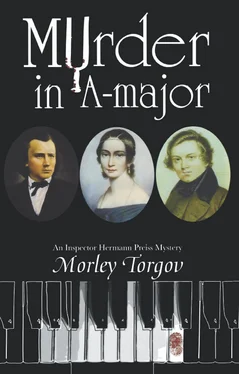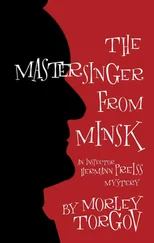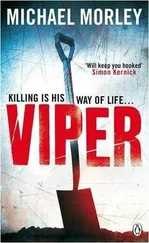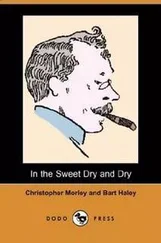Morley Torgov - Murder in A-Major
Здесь есть возможность читать онлайн «Morley Torgov - Murder in A-Major» весь текст электронной книги совершенно бесплатно (целиком полную версию без сокращений). В некоторых случаях можно слушать аудио, скачать через торрент в формате fb2 и присутствует краткое содержание. Жанр: Исторический детектив, на английском языке. Описание произведения, (предисловие) а так же отзывы посетителей доступны на портале библиотеки ЛибКат.
- Название:Murder in A-Major
- Автор:
- Жанр:
- Год:неизвестен
- ISBN:нет данных
- Рейтинг книги:5 / 5. Голосов: 1
-
Избранное:Добавить в избранное
- Отзывы:
-
Ваша оценка:
- 100
- 1
- 2
- 3
- 4
- 5
Murder in A-Major: краткое содержание, описание и аннотация
Предлагаем к чтению аннотацию, описание, краткое содержание или предисловие (зависит от того, что написал сам автор книги «Murder in A-Major»). Если вы не нашли необходимую информацию о книге — напишите в комментариях, мы постараемся отыскать её.
Murder in A-Major — читать онлайн бесплатно полную книгу (весь текст) целиком
Ниже представлен текст книги, разбитый по страницам. Система сохранения места последней прочитанной страницы, позволяет с удобством читать онлайн бесплатно книгу «Murder in A-Major», без необходимости каждый раз заново искать на чём Вы остановились. Поставьте закладку, и сможете в любой момент перейти на страницу, на которой закончили чтение.
Интервал:
Закладка:
“Of course,” Hupfer said, “you realize that any deviation is not my fault. A Klems is not a Bösendorfer, you know.”
“I understand,” Clara said, full of deference. “Nobody is blaming you, Willi. Could we hear middle A now? My friends here-” She nodded in the direction of the four string players sitting by attentively. “My friends were not at all happy with the pitch.”
“Oh?” Hupfer said. “And what is supposed to be the trouble with the pitch, may I ask?” There was a slight edge now in his voice.
The second violinist, Martin Stollenberg, spoke up. “Not ‘ supposed to be the trouble’; there really is some trouble.”
Hupfer, peering over his spectacles at the impertinent fiddler, said, “Do you purport, sir, to have perfect pitch?”
“Not at all,” Stollenberg replied. “But I know when a note is sharp, and the middle A on this piano is definitely sharp.” Stollenberg's three colleagues muttered their agreement in unison.
Clara interjected, her eyes on a mantel clock, “Willi, we must get on with this. We have a heavy program to rehearse for this coming Sunday. Would you kindly oblige us by sounding middle A and doing whatever is needed so we can proceed.” She gave him a seductive smile.
“If you will pardon my frankness,” Hupfer said, rising from the piano bench, “I really believe you are being unfair to yourselves. The older piano is a far superior instrument. Better tone. The pins, even in an earthquake, won't loosen and throw the strings off. Why don't I-”
“But Willi,” Clara cut in, “I explained to you in my note that the Klems is far better suited to a chamber arrangement, especially in a setting like this. Remember, we are not performing in an auditorium. Please .”
Plainly reluctant, Hupfer seated himself again at the Klems. The members of the quartet brought their bows up to their strings, and waited for him to sound middle A. Hupfer's right index finger came down on the key so softly that it barely created a sound. The string players made no move to tune their instruments. The leader, Rudy von Schirach, affecting a jocular air, called out to Hupfer, “Come, come, Maestro, the note needs to be played fortissimo! Again, if you will.”
Hupfer shook his head. Quietly, he responded, “You are all making a grave mistake.”
“The A , Willi,” Clara said, her voice firm, “and louder this time.”
“This is deeply offensive to my sense of professionalism,” Hupfer said, looking her straight in the eye. Returning to the keyboard, he pressed his index finger down heavily on middle A.
“You see,” Stollenberg said, “I was right. It's absolutely sharp.”
Clara moved close to the Klems, hovering over the piano tuner, then boldly set her own finger down hard on the middle A key. “Oh dear, this will never do. Get out your tuning fork and do what must be done.” She stooped, picked up Hupfer's satchel, and handed it to him. “The fork, Willi-”
Slowly, Hupfer unfastened the belt that encircled the leather satchel. The bag fell open, each half revealing tools neatly arranged, each tool in a specially fitted holder. The piano technician's face darkened. “That's very odd,” he muttered. “For some reason it's not here.”
“The tuning fork?” Clara Schumann said.
“Yes. I must have left it in my shop.” Hupfer shook his head, as though angry with himself. “I cannot believe-” For a moment he fell into an awkward silence, then abruptly got to his feet. “I do apologize,” he said, addressing everyone, “but if you will bear with me, I will dash back to my workshop and-”
“There's no need to go to the trouble, Hupfer-”
I had slipped suddenly into the parlour from the adjoining study and called out to him. Sliding doors separating the two rooms had been left open sufficiently that I had been able to spy on his actions since the moment of his arrival. “Here…here is your tuning fork,” I said, holding it up so that it was in plain sight.
Hupfer pretended to be disgusted with himself. “Ach! How careless of me! I must have dropped it somewhere in my rush to get here.” He turned to Clara Schumann. “Whatever would we do without detectives!”
“Thank you, Herr Hupfer, for the compliment,” I said. “By the way, would you like to know where I found it?” I watched Hupfer's face for any sign of unease, but to my surprise I saw none.
“What does it matter where it was found? The important thing is, it was found.”
He started toward me and reached for the fork, but I swiftly drew back my hand, placing the instrument beyond his grasp. I gave him a quizzical smile. “Aren't you the least bit curious, I mean about how I came upon your tuning fork?” I said.
“Please, Inspector, we have no time for games.”
“We? You mean you have no time for games. Very well, Herr Hupfer, I too have no time for games.”
“Good,” Hupfer said. “The tuning fork, please.”
“But first let me tell you where I found it-”
“I said it does not matter!”
“In the apartment of Georg Adelmann, Hupfer, that is where I found it. Perhaps you have an explanation for your presence in his apartment, bearing in mind that among the myriad treasures with which Adelmann managed to surround himself, the one thing he never got around to was a piano. ”
“I don't know what you're talking about,” Hupfer said. “Come to think of it, I can't even be certain if what you're holding in your hand is my tuning fork. All tuning forks look alike.”
“There's one distinguishing feature. Allow me-” I struck the tuning fork firmly against the edge of Helena's wooden music stand.
“That's it! ” Rudy von Schirach exclaimed, “that's the A we tuned to at the musicale.”
“You're sure, von Schirach?” I said, not taking my eyes off Hupfer.
“Sure?” von Schirach said. “I'd wager my Guarneri del Jesu on it!”
Chapter Thirty-Three
We were in the interrogation room deep in the bowels of the Constabulary, just the two of us, Wilhelm Hupfer and I, he perched uncomfortably on the edge of an unforgiving wooden bench, facing me, the same bench on which some forty-eight hours earlier Walter Thüringer (now at least in one sense my key witness) had bought his freedom by informing me of Hupfer's lavish acquisitions. Ever since my first exposure to this room as a fledgling detective, I have regarded it as a windowless, dank entranceway to Hell, a checkpoint where one's criminal credentials are finally certified before one makes that final passage into the eternal fires. Indeed, in the flickering gaslight that provides the only illumination, even visiting saints take on the look of sinners.
Not that Wilhelm Hupfer was a visiting saint. Far from it.
“The tuning fork, Hupfer…you tampered with it, didn't you? Fixed it so that it would be just sharp enough that someone like Schumann would go out of his mind hearing it, remembering it, isn't that the truth?” Putting this question to Hupfer, I made a point of holding the fork almost touching his nose. “Look here, Hupfer. See, one prong has been shaved ever so slightly. One can barely notice it. In fact, you actually have to run a finger along each prong to discover that one is different from the other.” Rudy von Schirach had demonstrated this for my benefit, and now I was inviting Hupfer to test the instrument. “Here, see for yourself-”
“No no no! Von Schirach is wrong!”
“You knew, didn't you, Hupfer, that Schumann suffered from auditory hallucinations, because you have been in contact with the doctor who was treating him, Dr. Möbius? And you knew that these hallucinations would be aggravated if you mis-tuned his pianos, isn't that correct?”
Читать дальшеИнтервал:
Закладка:
Похожие книги на «Murder in A-Major»
Представляем Вашему вниманию похожие книги на «Murder in A-Major» списком для выбора. Мы отобрали схожую по названию и смыслу литературу в надежде предоставить читателям больше вариантов отыскать новые, интересные, ещё непрочитанные произведения.
Обсуждение, отзывы о книге «Murder in A-Major» и просто собственные мнения читателей. Оставьте ваши комментарии, напишите, что Вы думаете о произведении, его смысле или главных героях. Укажите что конкретно понравилось, а что нет, и почему Вы так считаете.












